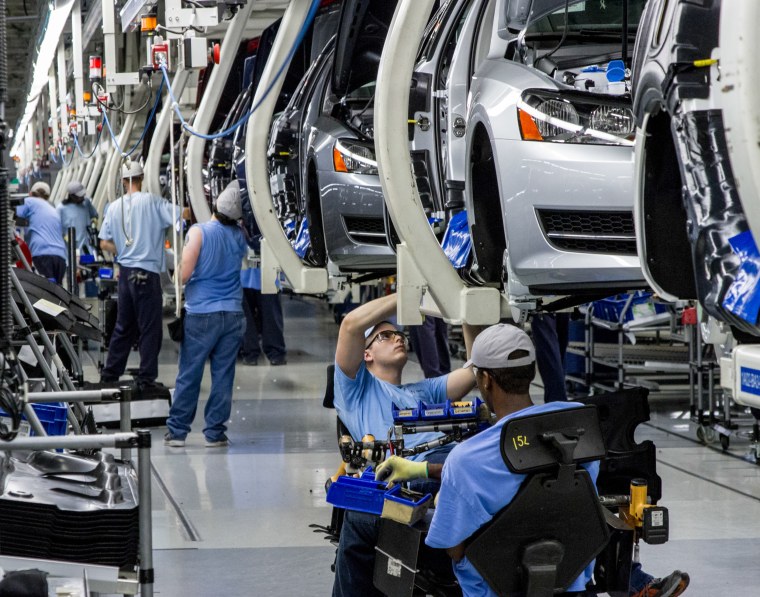Volkswagen announced Friday that it will eliminate about 30,000 jobs as it struggles to cut costs in the wake of a diesel emissions scandal that some analysts estimate will eventually cost it as much as $30 billion or more.
But the move is meant to do more than simply help cover the costs of the diesel scandal.
“The VW brand needs a real shake-up,” said CEO Matthias Mueller at a news conference.
VW has been facing pressure to address a bloated cost structure for several years. But the issue came to the forefront following revelations in September 2015 that it had rigged several of its diesel engines to illegally pass emissions tests. About 11 million vehicles were impacted worldwide.
Billions of Dollars in Settlements
Among other things, VW has since agreed to a $15 billion settlement that includes $10 billion to buy back about 475,000 vehicles sold in the U.S. that were equipped with a 2.0-liter turbodiesel. A deal with the government involving a more upscale, 3.0-liter engine has yet to be completed.
The company has also agreed to settlements with dealers and is facing a lawsuit by investors. The company and various current and former employees are also under criminal investigation in the U.S. and Germany.
VW has ruled out selling off assets to help defray costs, but it has been looking to trim non-essential costs and make changes to its product and powertrain plans. Among other things, that means a shift from the diesels that have long dominated the line-up to battery-based technologies.
On Thursday, VW revealed a new version of its e-Golf, a battery-electric version of its popular hatchback. By 2025, the brand promises to have 30 electric models in its global portfolio.
But the changes also will include big cuts that many analysts have been saying were necessary for Volkswagen to match the efficiency of key competitors’ factories. In particular, the company now hopes to improve productivity at plants in Germany, including those at its sprawling Wolfsburg complex, by 25 percent.
A Push Into Tech
Of the roughly 30,000 jobs that will be eliminated, 23,000 will go in Germany. Because of the social structure in that country, and the fact that its union holds key positions in the corporate management board, the cuts were the subject of intense negotiations.
VW helped salve union concerns to some degree by promising to create 9,000 jobs as it transforms its portfolio. The changes not only include a push into electrification, but also the development of advances electronic controls and infotainment technology, as well as the development of autonomous vehicles. The company also is investing in car- and ride-sharing services in Germany and other parts of the world.
Whether the cuts and other changes announced Friday morning will be enough is already a matter of debate. The company now hopes to double its profit margin — but that is still well short of what many competitors are shooting for.
